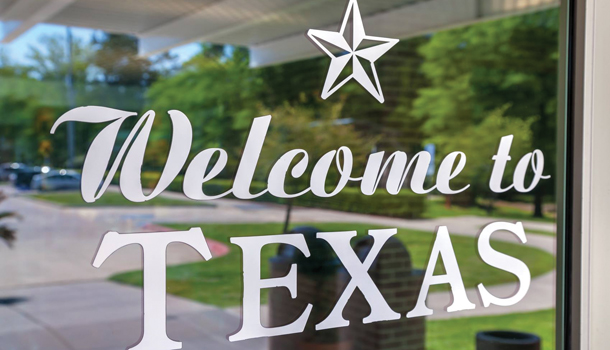
Texas Competes: Sometimes the Best Defense is a Good Offense
By Ryan M. Leach
The lesbian, gay, bisexual, and transgender community is under attack. That is not an exaggeration. State after state has either passed or attempted to pass legislation that allows for blatant discrimination against members of the LGBT community, and they are making fast progress. The next battleground is Texas, and a program called Texas Competes hopes to help prevent that.
North Carolina, Mississippi, Kansas, Indiana, and Tennessee have all passed uniquely awful anti-LGBT laws. State legislatures often present their discriminatory bills as “Religious Freedom Restoration Acts” or RFRAs. RFRA supporters say these laws are designed to protect the individual’s ability to practice their religion without the cruel impact of big government coming in to stop them. But the thing is, we already have a law that does that, and it is called the First Amendment of the U.S. Constitution. The First Amendment, and subsequent case law interpreting it, allows Americans to practice—or not practice—religion in any way they see fit. There are, of course, reasonable restrictions on this. For instance, human sacrifice—that’s a no-no.
So why the need for another law that allows us to do what the Constitution already says we can do? Well, as with most things, the devil is in the details. RFRAs actually create loopholes that allow business owners to deny goods and services to people who don’t particularly jive with that owner’s specific set of religious beliefs. These laws were created so that the baker who has opened her doors to the public can tell same-sex couples that she will not bake a cake for their wedding because gay sex is an abomination, or something along those lines. That is not religious freedom. That is discrimination. If you are a business that is open to the public, federal law prohibits you from discriminating against members of the public for reasons based on race, gender, age, or religion. However, because federal law does not currently protect sexual orientation and gender expression, we have no legal protections from LGBT discrimination in Houston, Texas.
It has been argued that RFRA laws do allow for discrimination against the other legally protected classes as well. If people are allowed to discriminate against others based on their religious beliefs, then who is to say that this cannot extend itself to discriminate against Muslims? (wait, that already happens) or black people? (wait, that still happens, too) or disabled people (crap)? Well, it’s not supposed to happen, but it could.
In a conservative state like Texas, our top leaders (who are self-professed ultra-conservative evangelicals) have to feed their base something in order to secure their position among voters. At the top of that menu—alongside women, immigrants, and the poor, are usually LGBT citizens.

This time, Texas has an advantage through a statewide program called Texas Competes. The program’s managing director, Jessica Shortall, explains that “Texas Competes is a coalition of Texas employers, chambers of commerce, and industry associations making the economic case for an LGBT-friendly Texas. As of April 20 more than 850 of Texas’ economic stakeholders have signed the Texas Competes pledge, because they recognize that their ability to attract talent, corporate investment, and travel and tourism will be significantly hindered if Texas projects an unwelcoming brand toward LGBT people.”
Texas Competes just celebrated its first anniversary. The coalition started in 2014 and launched publicly during the 2015 legislative session, which saw over 20 anti-LGBT bills filed. None of these bills ultimately came up for a vote. The coalition’s goal is to have at least 2,000 members before the 2017 session commences in January. Even though the legislature is not in session, that does not mean there is not work to do, according to Shortall. “This work is important year-round. The Texas economy is 24/7, and businesses, cities, and chambers of commerce are always trying to attract the best talent, events, and investments. It’s crucial to the Texas economy that the business community make its stance on these issues clear, now and at all times.”
The Texas Competes coalition is made up of a wide variety of Texas business owners by design. The economic engine of Texas is not powered by big business alone, and it is important that all groups have an opportunity to join their voices as a coalition and signal to lawmakers that Texas is open for business for everyone, including the LGBT community. “Examples of big businesses include Salesforce.com, Hunt Companies, Sammons Enterprises, American, Southwest, United, JetBlue, Alaska, and Virgin Airlines, most of the major hotel groups, Texas Instruments, Tenet Health, sporting entities like the Dallas Mavericks and the Houston Super Bowl Host Committee, and many more. More than 600 small businesses from all over the state have signed—urban and rural, in every industry,” says Shortall.
Shortall points out one special distinction about the coalition: “Texas Competes does not lobby on any legislation. Of course, we are aware that legislators and leaders in the state are paying close attention to our rapid growth, because it represents a clear stance from the business community on LGBT issues, and because our state’s business leaders are experts in what drives job creation in Texas.”
If you or a business you know would like to join the free, nonpartisan coalition, you can at pledge.texascompetes.org. Any Texas employer, whether headquartered in Texas or not, can sign.
Ryan Leach is a community leader, writer, advocate and humorist. You can reach him at [email protected].











Comments